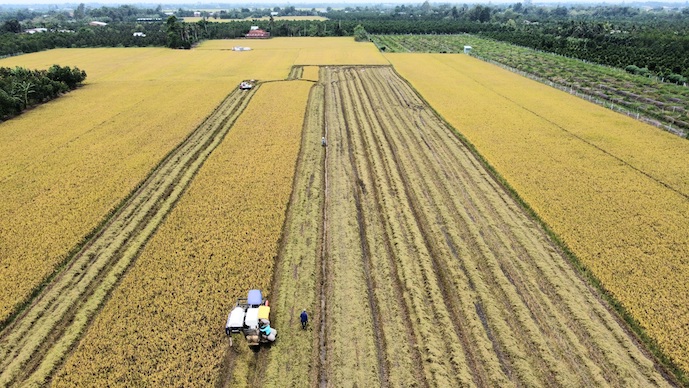HCMC – Dong Thap Province aims to cultivate 50,000 hectares of high-quality rice this year as part of Vietnam’s sustainable rice production initiative, which seeks to develop one million hectares of specialized, low-emission rice farming in the Mekong Delta by 2030.
The vice chairman of the Dong Thap People’s Committee said that the province will reduce rice seed usage to 80–100 kilograms per hectare, cut chemical fertilizers and pesticides by 20%, and decrease irrigation water consumption by 20% compared to traditional farming methods.
All farming areas will adopt at least one sustainable method, such as controlled irrigation, eco-friendly production standards, certified good farming practices, or designated planting area codes.
The high-quality, low-emission rice farming zones will follow a coordinated model, linking businesses with cooperatives, farmer organizations, and production groups for better cultivation and distribution.
Mechanization is expected to cover over 50% of the area, and more than 45,000 households will implement sustainable farming practices, he was quoted by the Vietnam News Agency as saying.
The implementation plan also sets goals for environmental protection and green growth, aiming to keep post-harvest losses below 10%, collect and repurpose at least 70% of rice straw from specialized farming areas, and reduce greenhouse gas emissions by more than 10% compared to traditional rice cultivation.
Added value in the rice value chain is expected to rise by 30%. Farmers’ profit margins are targeted to exceed 40%, while high-quality, low-emission rice exports will account for over 20% of the total rice exports from the specialized farming areas.
To achieve these goals, Dong Thap will invest in infrastructure for specialized farming areas, develop a model irrigation system for high-quality, low-emission rice cultivation linked to green growth in Thap Muoi District, and upgrade irrigation works while improving the canal system.









